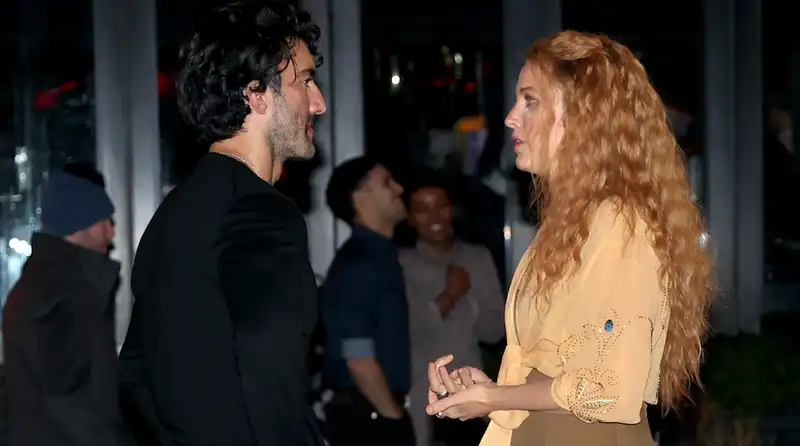
Director of "It Ends With Us" says film is for domestic abuse survivors who "can't go home.
This article contains statements about harassment and abusive behavior. If you or someone you know is experiencing any form of relationship abuse, contact the National Domestic Violence Hotline, which provides free and confidential support 24 hours a day, 7 days a week. Text "START" to 88788, call 1-800-799-SAFE (7233), or chat online at TheHotline.org.
The director and star of the new film "It Ends With Us" opens up about the inspiration behind the film and who he hopes it will help the most.
Justin Baldoni, who both directs and stars in the book-to-film adaptation, told People in an exclusive interview that he judges a film's success by "an often unnoticed metric."
"If it's just a huge commercial success, it's one-dimensional. For [production company] Wayfarer Studios, and for myself, the other aspect is ...... It's about one person in a similar situation as Lily."
Baldoni added that he hopes that viewers who see the film will be inspired by the main character, Lily Bloom (played by Blake Lively), to make "a different choice for themselves" if they themselves are facing a case of domestic violence or intimate partner violence He stated.
"[The film] is for people who go to see this movie with their friends and never go home," he explained.
In the book and the film that follows, the protagonist, played by Lively, grew up in a home plagued by domestic violence. In the book, the mother's abuse ends only when the father dies.
Later in the film, the protagonist (a florist), played by Lively, meets an attractive neurosurgeon, played by Baldoni, who, like his father, was also abused. For the film's author, Colleen Hoover, it was important that Baldoni's character be "painfully human".
"People spend a lot of time wondering why women don't leave," Hoover said in a BBC interview.
"Where are the people who wonder why the men are so abusive?Baldoni told People that when he read the novel, he remembered thinking, "This could be such an empowering film."
"I remember being so touched, moved, and inspired by Lily's choices," he recalled, adding that as he read the book, he thought about his own daughter and son as he followed Bloom's experience and ultimate decision.
"When my daughter was born and I held her for the first time, it felt like my own birth. And then my son was born, and every day I feel like I'm being shown a mirror. Being able to hold that mirror up to my face every day is the biggest challenge of my life, and the biggest blessing."
"I don't think this is a film just for women. I think this is a film for everyone."

Comments